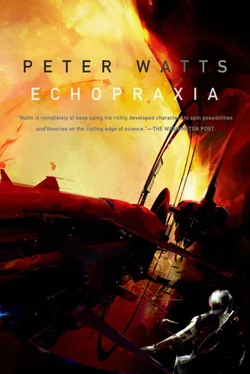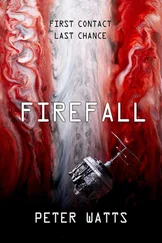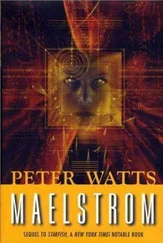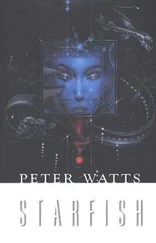But given this current state of the art, one of the more indigestible nuggets Echopraxia asks you to swallow is that eight decades from now, people will still buy into such an incoherent premise—that as we close on the twenty-second century, we will continue to act as though we have Free Will.
In fact, we might behave that way. It’s not that you can’t convince people that they’re automatons; that’s easy enough to pull off, intellectually at least. Folks will even change their attitudes and behavior in the wake of those insights [136] Davide Rigoni et al., “Inducing Disbelief in Free Will Alters Brain Correlates of Preconscious Motor Preparation: The Brain Minds Whether We Believe in Free Will or Not,” Psychological Science 22, no. 5 (May 2011): 613–618, doi:10.1177/0956797611405680.
—be more likely to cheat or less likely to hold people responsible for unlawful acts, for example. [137] Roy F. Baumeister, E. J. Masicampo, and C. Nathan DeWall, “Prosocial Benefits of Feeling Free: Disbelief in Free Will Increases Aggression and Reduces Helpfulness,” Personality and Social Psychology Bulletin 35, no. 2 (February 1, 2009): 260–268, doi:10.1177/0146167208327217.
, [138] Kathleen D. Vohs and Jonathan W. Schooler, “The Value of Believing in Free Will Encouraging a Belief in Determinism Increases Cheating,” Psychological Science 19, no. 1 (January 1, 2008): 49–54, doi:10.1111/j.1467-9280.2008.02045.x.
But eventually our attitudes drift back to pre-enlightenment baselines; even most of those who accept determinism somehow manage to believe in personal culpability. [139] Hagop Sarkissian et al., “Is Belief in Free Will a Cultural Universal?,” Mind & Language 25, no. 3 (2010): 346–358, doi:10.1111/j.1468-0017.2010.01393.x.
, [140] Wasn’t it Joss Whedon, in one of his X-Men comics, who stated that “Contradiction is the seed of consciousness”?
Over tens of thousands of years we just got used to cruising at one-twenty; without constant conscious intervention, we tend to ease back on the pedal to that place we feel most comfortable.
Echopraxia makes the same token concessions that society is likely to. You may have noticed the occasional reference to the concept of personal culpability having been weeded out of justice systems the world over, that those dark-ages throwbacks still adhering to the notion are subject to Human Rights sanctions by the rest of the civilized world. Brüks and Moore squabble over “the old no-free-will shtick ” back at the monastery. Adherents to those Eastern religions who never really took free will all that seriously anyway have buggered off into a hive-minded state of (as far as anyone can tell) deep catatonia. The rest of us continue to act pretty much the way we always have.
Turns out we don’t have much choice in the matter.
PETER WATTS is the Hugo and Nebula nominated author of Blindsight and has been called “a hard science fiction writer through and through and one of the very best alive” by The Globe and Mail and whose work the New York Times called “seriously paranoid.”
Starfish
Maelstrom
ßehemoth: ß-Max
ßehemoth: Seppuku
Blindsight
Echopraxia
This is a work of fiction. All of the characters, organizations, and events portrayed in this novel are either products of the author’s imagination or are used fictitiously.
ECHOPRAXIA
Copyright © 2014 by Peter Watts
All rights reserved.
A Tor Book
Published by Tom Doherty Associates, LLC
175 Fifth Avenue
New York, NY 10010
www.tor-forge.com
Tor® is a registered trademark of Tom Doherty Associates, LLC.
ISBN 978-0-7653-2802-1 (hardcover)
ISBN 978-1-4299-4806-7 (e-book)
The Library of Congress Cataloging-in-Publication Data is available upon request.
Tor books may be purchased for educational, business, or promotional use. For information on bulk purchases, please contact Macmillan Corporate and Premium Sales Department at 1-800-221-7945, extension 5442, or write specialmarkets@macmillan.com.
First Edition: August 2014
Printed in the United States of America
0 9 8 7 6 5 4 3 2 1
D. M. Rosenthal, “Consciousness and Its Function,” Neuropsychologia 46, no. 3 (2008): 829–840.
Asael Y. Sklar et al., “Reading and Doing Arithmetic Nonconsciously,” Proceedings of the National Academy of Sciences (November 12, 2012): 201211645, doi:10.1073/pnas.1211645109.
Ap Dijksterhuis et al., “On Making the Right Choice: The Deliberation-Without-Attention Effect,” Science 311, no. 5763 (February 17, 2006): 1005–1007, doi:10.1126/science.1121629.
Christof Koch and Naotsugu Tsuchiya, “Attention and Consciousness: Two Distinct Brain Processes,” Trends in Cognitive Sciences 11, no. 1 (January 2007): 16–22, doi:10.1016/j.tics.2006.10.012.
Ken A. Paller and Joel L. Voss, “An Electrophysiological Signature of Unconscious Recognition Memory,” Nature Neuroscience 12, no. 3 (March 2009): 349+.
C. Nathan DeWall, Roy F. Baumeister, and E. J. Masicampo, “Evidence That Logical Reasoning Depends on Conscious Processing,” Consciousness and Cognition 17, no. 3 (September 2008): 628–645, doi:10.1016/j.concog.2007.12.004.
Ezequiel Morsella et al., “The Essence of Conscious Conflict: Subjective Effects of Sustaining Incompatible Intentions,” Emotion (Washington, D.C.) 9, no. 5 (October 2009): 717–728, doi:10.1037/a0017121.
E. Morsella, “The Function of Phenomenal States: Supramodular Interaction Theory,” Psychological Review 112, no. 4 (2005): 1000–1021.
Matthew W. Self and Pieter R. Roelfsema, “Optogenetics: Eye Movements at Light Speed,” Current Biology 22, no. 18 (September 25, 2012): R804–R806, doi:10.1016/j.cub.2012.07.039.
Shahar Arzy et al., “Induction of an Illusory Shadow Person,” Nature 443, no. 7109 (September 21, 2006): 287–287, doi:10.1038/443287a.
Michael A. Persinger and Sandra G. Tiller, “Case Report: A Prototypical Spontaneous ‘sensed Presence’ of a Sentient Being and Concomitant Electroencephalographic Activity in the Clinical Laboratory,” Neurocase 14, no. 5 (2008): 425–430, doi:10.1080/13554790802406172.
Joyce Cohen, “For People with Misophonia, a Chomp or a Slurp May Cause Rage,” June 9, 2011, http://www.nytimes.com/2011/09/06/health/06annoy.html.
Rachel Jones, “Stress Brings Memories to the Fore,” PLoS Biol 8, no. 12 (December 21, 2010): e1001007, doi:10.1371/journal.pbio.1001007.
V. S. Ramachandran, The Tell-Tale Brain: a Neuroscientist’s Quest for What Makes Us Human (New York: W. W. Norton, 2012).
Alexis C. Madrigal, “The Dark Side of the Placebo Effect: When Intense Belief Kills,” The Atlantic , September 14, 2011, http://www.theatlantic.com/health/archive/2011/09/the-dark-side-of-the-placebo-effect-when-intense-belief-kills/245065/.
Читать дальше








